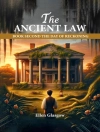In ‘A Modern Instance, ‘ William Dean Howells crafts a compelling narrative that captures the complexities of marriage and societal expectations in post-Civil War America. Set against the backdrop of an evolving social landscape, Howells employs a realist literary style, characterized by its intricate character development and a keen observation of everyday life. The protagonist, George H. Trumbull, embodies the struggles of moral integrity amidst a changing moral code, revealing the tensions between personal desire and social obligation in a rapidly modernizing society. Through deft dialogue and nuanced portrayals, Howells invites readers to interrogate the notion of fidelity and the intricacies of romantic relationships in contemporary American life. William Dean Howells, often heralded as the ‘Dean of American Letters, ‘ was a pivotal figure in American realism. His experiences as a literary critic, editor, and social commentator informed his understanding of the cultural shifts of his time, particularly regarding marriage and gender dynamics. Howells’ own views on the importance of moral complexity and social realism are palpable in this novel, positioning him as a reflective voice of his era. This novel is highly recommended for readers interested in the evolution of American literature and societal norms. Howells’ acute insights into the human condition make ‘A Modern Instance’ a significant work that remains relevant to contemporary discussions about relationships and societal roles, providing both intellectual engagement and emotional resonance.
关于作者
William Dean Howells (1837-1920) was a pivotal figure in American literature, offering a bridge between the 19th-century realism and 20th-century modernity. Born in Martins Ferry, Ohio, Howells rose to prominence not just as a writer, but also as a literary critic and as an editor, including a long tenure at the Atlantic Monthly. His work is characterized by its societal examination and nuanced portrayal of American life. Howells is often cited among the ‘Fathers of American Realism’ for his contributions to the literary movement that sought to depict everyday life and people with fidelity (E. N. Harbert, W. D. Howells and Art in His Time, 1970). ‘A Modern Instance’ (1882), one of his best-known novels, stands testament to his literary ethos, dissecting the intricacies and moral dilemmas of a divorce in a small New England town. This work, along with many others, showcases Howells’ attentiveness to the subtleties of human relationships and societal norms. Through his prose, Howells advocated for realism, and he delineated social themes with a clarity that influenced generations of writers. His literary style, descriptive yet controlled, mirrors the unembellished truths he sought to expose, offering readers a mirror to the shifting American milieu (K. L. Halio, Howells and the Age of Realism, 1966).












